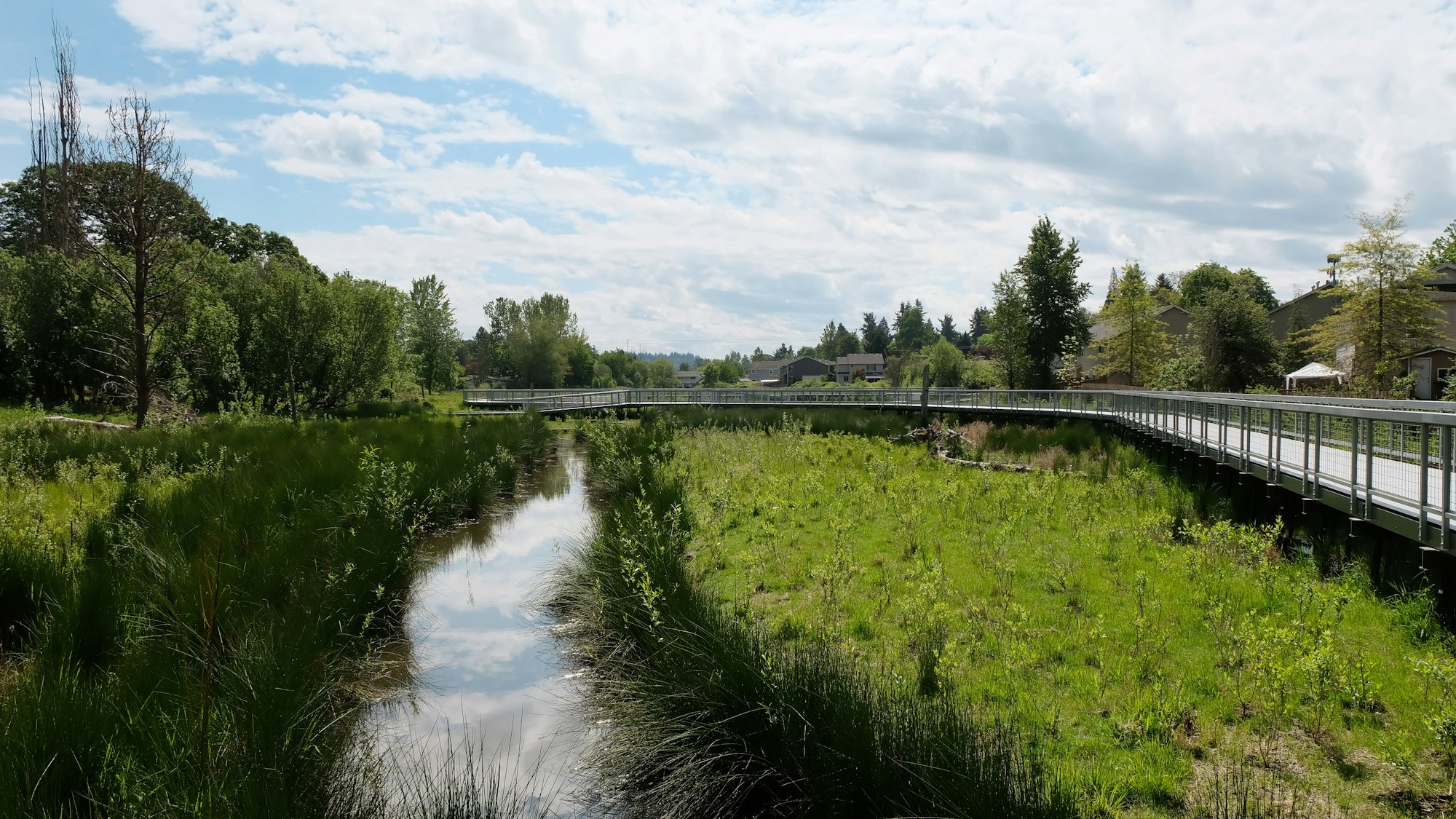Surface Water System and Flooding FAQ
Contact the Customer Service Department at info@olws.org or (503) 654-7765.
OLWS is here to provide routine customer service response to cleaning catch basins and to responding to storm/surface water questions.
OLWS routes service requests to Clackamas County if they require emergency response (flooding of roads, safety risk), ditch cleaning, or street sweeping.
OLWS likely cannot solve any emergency flooding problem on private property or on roadways (public or private) due to structural issues.
- If emergency flooding is observed on roadways, or if there are any roadway deficiencies (cracks, signage, paint/crosswalks), culverts, road shoulder or ditch drainage problems, or if a catch basin (grate) is not draining, contact the Clackamas County Road Department at (503) 577-6391 or by email at RoadConcerns@clackamas.us.
- For flooding on McLoughlin Boulevard contact the Oregon Department of Transportation at: (503) 283-5859
- If water is coming from a roadway into your yard, driveway or for any other roadway flooding problem, call the Clackamas County Road Department at (503) 577-6391 or email at RoadConcerns@clackamas.us.
- If your privately owned rain drain, gutter, downspout, storm facility or catch basin is overflowing, please contact a plumber/gutter/landscape contractor about the issue.
Rain drains (gutter downspouts) terminate in a variety of manners including:
- Directly into the ground;
- Directly onto the yard;
- Right next to the foundation;
- Into a drywell or soakage trench;
- To weepholes in the curb or property line;
- To a piped system which drains directly to local creeks and rivers.
Often rain drains that discharge in the first three manners account for on-property flooding. Call a plumber/landscape contractor to determine which manner your house or structure uses and how to fix problems.
The Board of Directors of the former Oak Lodge Sanitary District created a Surface Water Management (SWM) program with the adoption of Ordinance 1001 in May of 1993. The purpose of the SWM Program is to:
- prevent pollutants from entering rivers, lakes, and streams;
- maintain and/or improve water quality; and
- restore or enhance properly functioning conditions in the watersheds.
Program development began officially on July 1, 1993, with the collection of SWM fees based on impervious surface area.
Erosion Control materials and products come in a wide variety of shapes and sizes. See DEQ's Erosion Control Manual for information on selection and correct installation of erosion control materials. To insure proper installation contact a builder or excavator. An OLWS permit is needed prior to erosion control measure installation.
Some properties have legal agreements on record with OLWS that describe commitments for inspection and maintenance. To find out about your property’s requirements, contact lara@olwsd.org. General system maintenance requirements can be found at www.stormwaterpartners.com.
OLWS regulations, tree removal and replacement are the primary considerations. Other agencies may have applicable regulations. Contact the Permitting Specialist, Markus Mead at (503) 654-7765 or markus.mead@olws.org.
Pet waste carries pathogens such as Giardia, E. Coli, Salmonella and Campylobacter. These bugs cause illness in people, especially children and the elderly.
The local streams in the OLWS boundary area are known to carry harmful levels of bacteria. You can help by always picking up after your pet when on walks and by avoiding children's play areas. Look for a waste bag for dog waste in boxes located along the Trolley Trail. Take one when you need one and help out by bringing extra bags to leave for others.
OLWS is interested in citizen input for surface water projects and programs. If you are interested in participating in a community committee, please email alexa@olwsd.org for more information. We will keep your completed form on file, and contact you when a new volunteer opportunity occurs.
Clackamas County owns the vast majority of the storm system in OLWS. Stormwater drainage pipes and facilities on private property are owned by the private property owner. There are a few locations where OLWS has a stormwater facility easement, but in general OLWS does not own the stormwater system.

 Contact Us
Contact Us